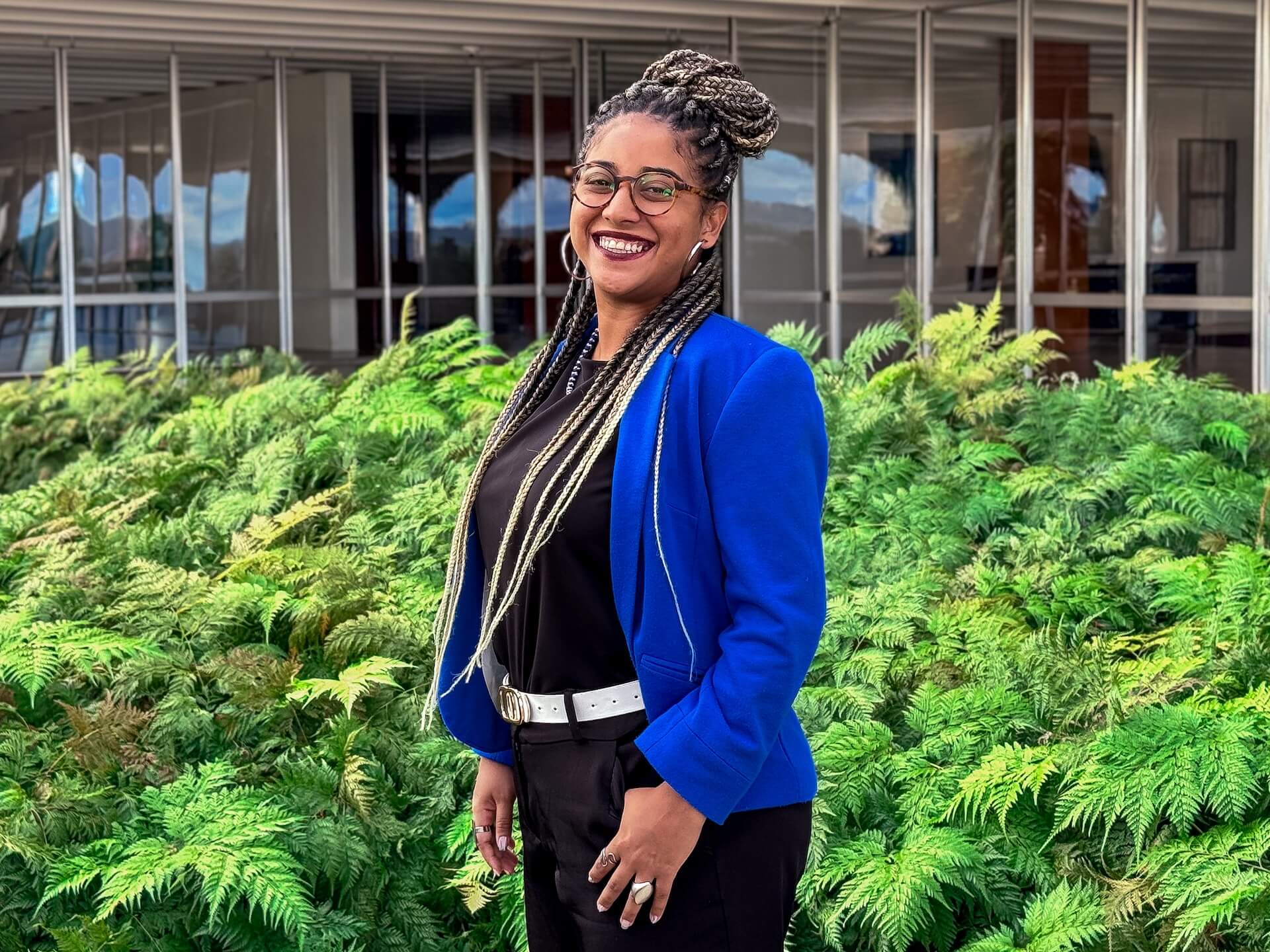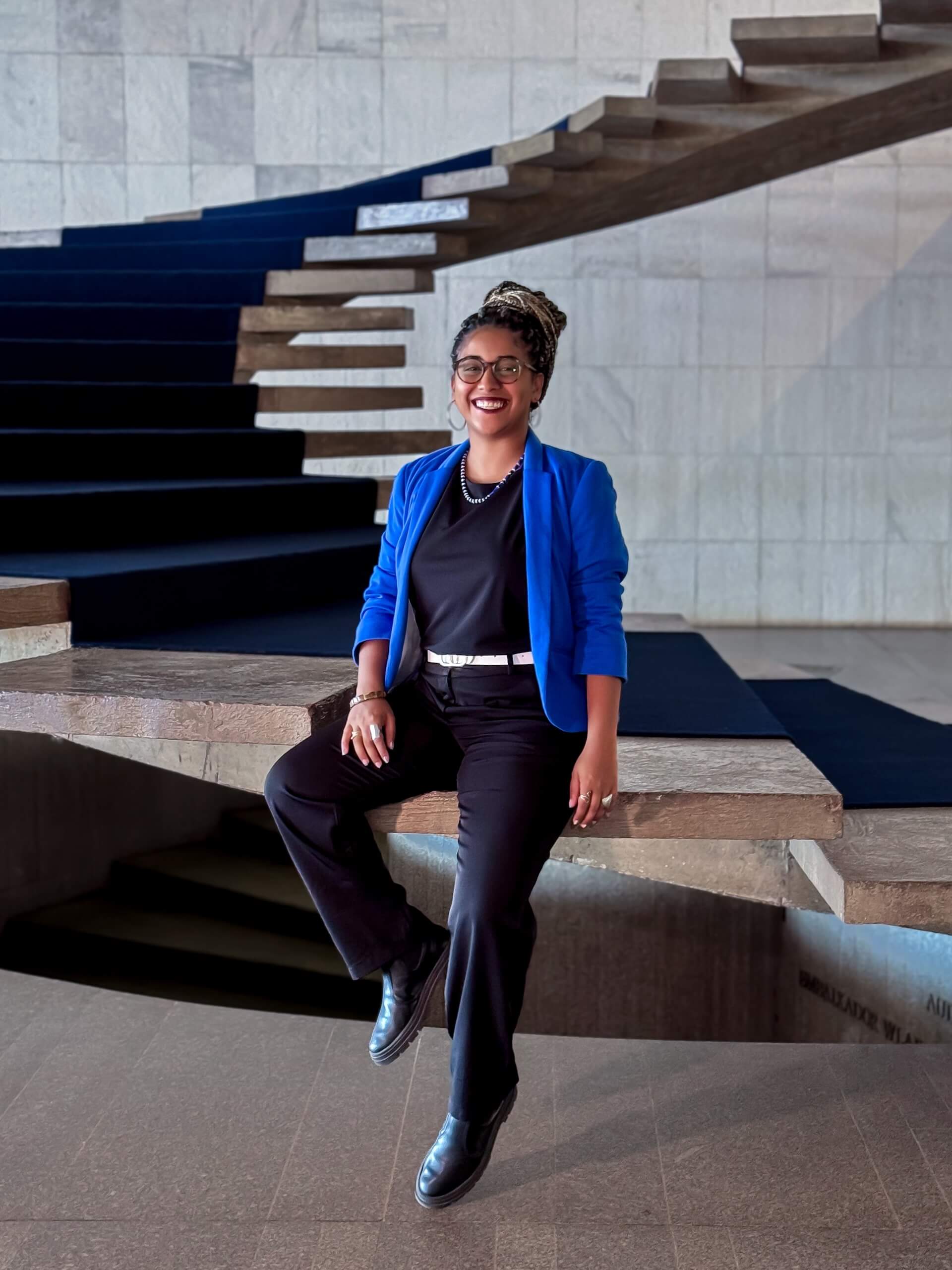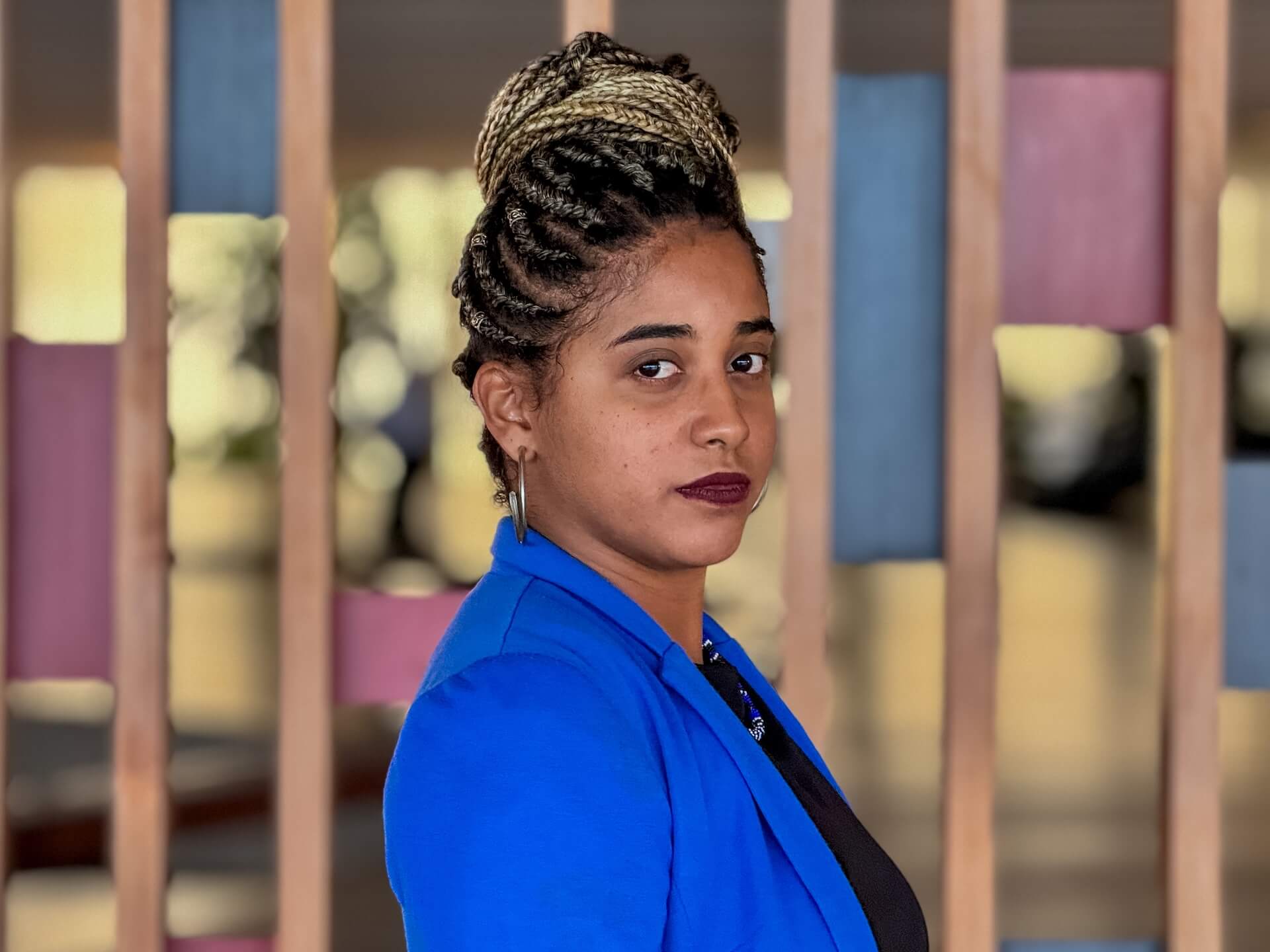Marcele Oliveira: “The Mutirão for climate change is a shift in mindset”
The COP30 Youth Climate Champion will take part in international climate negotiations, representing youth and civil society

Marcele Oliveira, the Youth Climate Champion for COP30, believes that the concept of a "mutirão" (collective effort) represents a new mindset about society's relationship with the environment. In an exclusive interview with the COP30 website, the activist discussed her plans to represent young people in international climate negotiations.
Marcele was selected amongst 154 applicants to represent young people in the Federal Government's Call to Apply for the Youth Climate Champion role. This role was created at COP28 to increase young people's representation in climate policy and amplify their voices within the COP presidencies and the United Nations Framework Convention on Climate Change (UNFCCC).
Marcele is a cultural producer who holds a degree from Fluminense Federal University (Universidade Federal Fluminense). She researches the intersection of cultural practices and responses to the impacts of climate change in marginalized communities, focusing on adaptation and climate education. She is also part of the Youth Climate Negotiators programme (Jovens Negociadores pelo Clima) – a coalition of young people from Brasil who participate in climate conferences – and has attended the climate conferences since COP27 in Egypt through the 'Clima É de Mudança' coalition and Perifalab.
Read the full interview below with the COP30 Youth Climate Champion.
What does it mean to be the Youth Climate Champion?
The role is the result of coordination among global youth movements, considering how we can influence the agenda concerning children, teenagers, and their families. This agenda not only focuses on the structure of the negotiations and key topics such as transition, adaptation, finance, and loss and damage, but it also considers the structure of the COP itself.
The role connects with the Children and Youth Constituency, known as YOUNGO (Organização de Juventude), and with civil society, showing young people that we are talking about their future. I see COP30 as a process that starts long before the event itself. The space shouldn't just begin and end on the official dates; it should spill over into ongoing climate action and sustained pressure.
What is the importance of someone with your background taking on this role?
Marcele Oliveira: I am a Black woman from a peripheral area and a researcher of culture and climate. Over the past five years, my climate activism has flourished through my cultural work and the environmental racism present in my community. I realized it's a role that brings ideas together and ensures that government bureaucracy doesn't extinguish our creativity or our desire to envision a different society.
The COP is a process. It's neither the final result nor the finish line. It's an important protocol that allows countries to discuss climate change. However, negotiations require pressure and people — a task force is truly necessary for this topic to be addressed with the seriousness it deserves in our lives
I believe the image of a Black woman in Brasil has a significant impact, but it's not just about me. It's about building something collectively with the diversity of our biomes, a qualified team, the COP30 presidency, and anyone interested in the concept of a climate task force.
The COP is a process. It's neither the final result nor the finish line. It's an important protocol that allows countries to discuss climate change. However, negotiations require pressure and people—a task force is truly necessary for this topic to be addressed with the seriousness it deserves in our lives. This will allow us to combat climate disinformation and promote environmental education, especially in underserved areas.

How are the impacts of climate change felt in people’s lives, especially in marginalized areas?
Marcele Oliveira: I come from Realengo, in the West Zone of Rio de Janeiro, where we had a historic fight to create a green park. Today, it’s not just a park—it’s a public policy for urban and ecological parks in the city's peripheries. So when we talk about the periphery, this is deeply connected to the existence of bodies that, today, are facing major challenges in imagining the future.
When we talk about the future, we’re talking about something that doesn’t feel close. The climate crisis seems like a problem for tomorrow, but it’s been a problem for today for a long time — seen in floods and heatwaves. What we witnessed in Rio Grande do Sul, for example, seemed new to many, but science had already warned it could happen.
What’s lacking is action, an adaptation plan. Municipal, state, and federal governments need to be encouraged to understand that if we don’t act now, the consequences of climate change will increasingly affect all of us —especially the most vulnerable. So, young people’s position in this discussion is also one of demand: for real inclusion and participation when decisions are being made about us.
COP30’s presidency intends to invite the international community to a collective effort—a “task force”— to face the climate crisis. How do you believe this call can be made, especially to young people?
Marcele Oliveira: The “mutirão” (collective effort) against climate change is not just a government initiative; it's not limited to COP, either. It’s a shift in thinking about how we relate to our biomes and environment, and the public policies that exist—or don't—when we talk about nature.
UNICEF says that young people are exposed to more than one climate risk in their daily lives. It’s hard for me to look at this issue and think it’s not part of people’s everyday reality. We feel the heatwaves, deal with flood consequences, face food insecurity, and see the degradation of the environment in the form of fires and polluted rivers. So, it’s not new. When we address this from the perspective of everyday experience, people will get involved and want to be closer to this formal and protocol-driven process that is COP.
The “mutirão” (collective effort) against climate change is not just a government initiative; it's not limited to COP, either. It’s a shift in thinking about how we relate to our biomes and environment, and the public policies that exist—or don't—when we talk about nature
So, COP30 being held in Brasil, in the Amazônia, in Latin America—that means we’ll see many ripple effects beyond negotiations. We’re also talking about the pressure coming from all the people who won’t be in Belém, or even in Brasil, but who will support the idea of a task force in whatever way they can. Whether through poetry, rap battles, legislation, or technology... I think it’s not about dictating what should be done, but about listening to what’s already being done and learning from it.
What do you believe is the biggest challenge facing COP30?

Marcele Oliveira: From what I’ve seen, especially at the last three COPs I attended personally, I've noticed a gap between the events themselves and the environment, as well as between the real priorities of communities — and the people most affected by climate change — in general.
I think our task is to look at this massive event happening in our country with a more sensitive perspective. This is a COP taking place in the Amazônia, in Brasil, in Latin America—and these three lenses are vital, because these are places deeply affected by decisions made elsewhere. When we talk about prioritizing the Global South, about the importance of youth voices—children, adolescents, and their families—about bringing efforts together, we’re addressing a challenge that’s already on the table but hasn’t been tackled.
So our stance is to face that challenge head-on. I believe COP30 will succeed—not because the location is special, but because Brasil’s presidency can and will do things differently. The future is already knocking at our door. We must face it with great responsibility. I am here to defend it—my future, the future of generations to come, of children who are witnessing the climate crisis without ever having the right to weigh in, and of peripheral communities that live in neighborhoods with not a single tree. COP30 is also about a shift in thinking—a new way of seeing the world.
